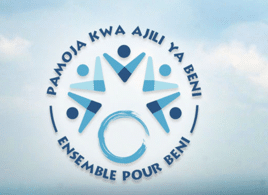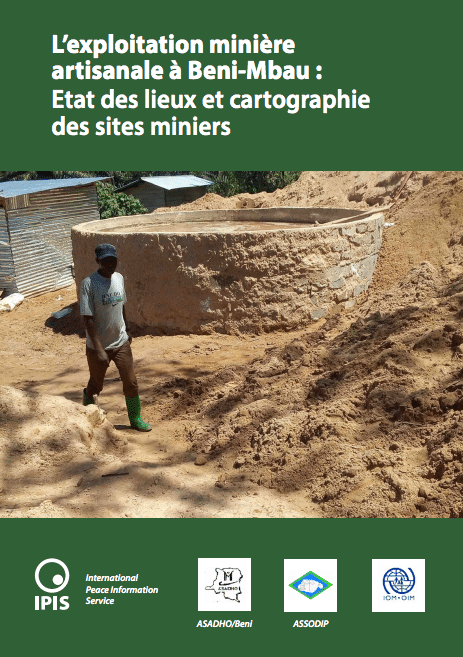The Beni Territory located in the north of the North Kivu Province has experienced repeated wars perpetrated by national and foreign armed groups such as the Allied Democratic Forces (ADF) rebellion or several groups of Mai Mai fighters. Since 2014, the population has been the victim of excessive and deadly violence.
On the one hand, the artisanal mining sector is an economic activity with a high potential to contribute to the local development of conflict or high-risk zones. On the other hand, this same sector has often been described as the main source of conflict financing in eastern DRC. In particular, in the Beni territory, for several years now, a large part of the territory, covering mining sites, has been controlled by armed groups who draw dividends (by exploiting or charging taxes).
Within the framework of the stabilisation project “Ensemble Pour Beni”, IPIS and its partners IOM, ASSODIP and ASADHO have carried out an assessment of the artisanal mining sector in Beni territory. They conducted a series of consultations with stakeholders in the Beni-Mbau mining sector. Subsequently, two mixed research teams (composed of representatives of civil society in Beni, as well as technical service agents from the Ministry of Mines), conducted research on 33 mining sites, which included a much larger number of “chantiers”.
This report provides an overview of the artisanal mining sector in the Beni-Mbau area. The gold sector there faces huge challenges, including socio-economic problems, under-utilisation of production capacity, lack of state monitoring, and above all the activism of armed groups (ADF and Mai Mai) in the area, some of whom have complete control over certain mining sites. This insecurity facilitates large-scale mining fraud, smuggling and illegal taxation as well as human rights violations in and around mining sites.
In addition, the report analyses opportunities to promote responsible mineral supply chains. It presents a mapping of the mining sites in the Beni-Mbau sector and an assessment of the opportunities to implement due diligence on the basis of internationally recognised criteria.

This document has been produced with the financial support of the Consortium for Integration, Peace and Stabilisation in Eastern DRC, known as “Ensemble Pour Beni”, created within the framework of the International Security and Stabilisation Support Strategy (ISSSS) to support the implementation of the DRC Government’s Programme for the Stabilisation and Reconstruction of Areas Emerging from Armed Conflict (STAREC). The consortium is made up of 5 organisations: IOM, World Vision, Search For Common Ground, Interpeace, and UCBC, with IOM as the lead organisation. The contents of this document are the sole responsibility of the authors and can in no way be considered as reflecting the position of the IOM or Ensemble Pour Beni .


